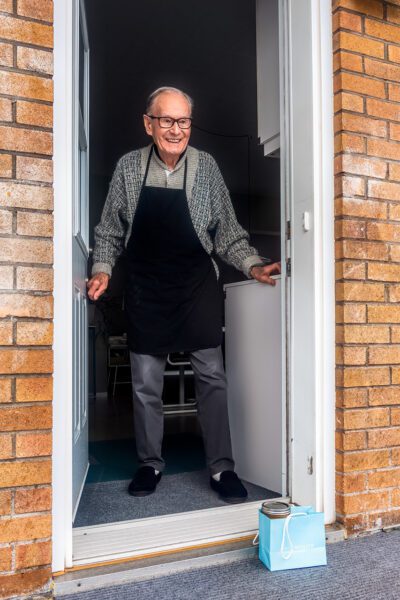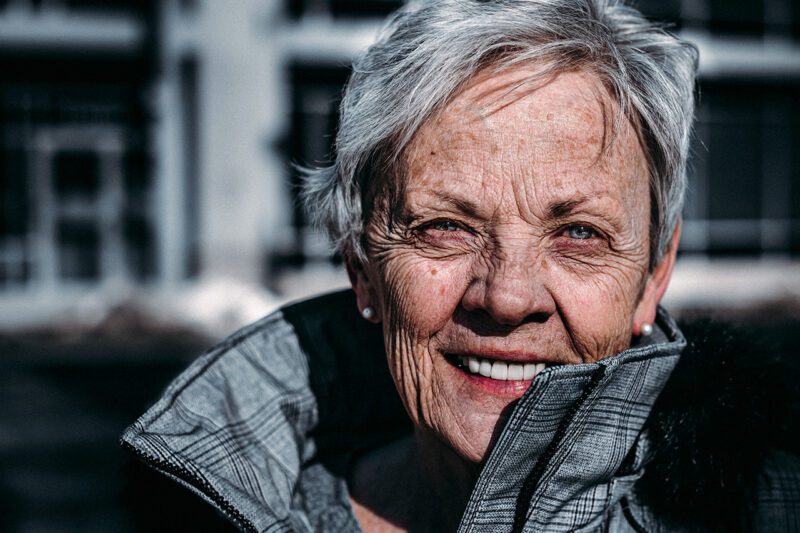Sovereign Seeds: Reclaiming MENA’s Agricultural Future
Reviving local food systems and unlocking rural prosperity

A recent article in the New York Times draws our attention to an alarming aspect of our social fabric: the rising costs of long-term care. This issue is a microcosm of a broader systemic inadequacy in our current social, financial, and political frameworks. It highlights the urgent need for radical new thinking and methodologies, especially from the perspective of the impact economy.
While this editorial primarily focuses on the United States, the challenges of elder care are indeed a global phenomenon. Developed nations across Europe are also facing the pressures of an aging population, albeit with different healthcare and social care frameworks. Countries like Japan, with the world’s highest proportion of elderly citizens, are at the forefront of innovating elder care, integrating technology and social reform to meet the challenge. Even nations with more comprehensive safety nets are finding that their systems are strained under the weight of demographic changes and budgetary constraints. This underscores the universal need for sustainable solutions in elder care, solutions that can be adapted to various cultural and policy contexts.

Amplifying the urgency, noted by the Times, is the demographic shift on the horizon; by 2050, census estimates project that the population of Americans 65 and older will increase by more than 50 percent, to 86 million. Even more striking, the number of people 85 or older will nearly triple to 19 million, presenting unprecedented challenges in elder care.
A startling statistic from the Kaiser Family Foundation reveals that about 70% of people over the age of 65 will require some form of long-term care services and supports. This is not just a statistical probability; it’s a looming reality for a significant portion of our population. Coupled with this is the staggering cost associated with such care. Genworth Financial reports that the median annual cost for a private nursing home room has now exceeded $108,000. These figures are not just numbers; they represent a daunting financial burden for many families.
This stark economic reality calls for an urgent realignment of our economic models, especially within the context of the impact economy.
The limitations of our health insurance systems further compound these challenges. Medicare does not cover long-term care, and Medicaid only does so after an individual has exhausted their assets, often leading to families paying out of pocket and depleting their savings.
As we witness the escalating crisis and shortage of quality care options in elder care, it becomes increasingly apparent that this is not just an economic challenge but a profound ethical one. The way we care for our elderly reflects our values as a society. Currently, our systems often relegate the elderly to the margins, with the vital question of dignity in care remaining unaddressed. The impact economy urges us not just to view elder care through a lens of financial and practical viability, but through one of moral imperative. We must ask ourselves: How do we ensure that our elders, who have contributed to our society throughout their lives, are treated with the respect and dignity they deserve? This is not solely a question of policy or investment but of deep-seated social ethics that the impact economy is uniquely positioned to influence. By incorporating ethical considerations into our business models, we can create a holistic approach to elder care that honors the lives and contributions of our senior population.
 With coordinated initiatives at policy, financial, and community levels, the impact economy can pave the way for the systemic change we urgently need. Elder care solutions should empower seniors to live life on their own terms, with dignity, purpose, and compassion. The time for incremental change has passed – we need bold, morally-driven transformation. Such transformation demands radical new thinking and methodologies at various levels:
With coordinated initiatives at policy, financial, and community levels, the impact economy can pave the way for the systemic change we urgently need. Elder care solutions should empower seniors to live life on their own terms, with dignity, purpose, and compassion. The time for incremental change has passed – we need bold, morally-driven transformation. Such transformation demands radical new thinking and methodologies at various levels:
Policy Level: Governments need to re-evaluate their role in elder care. Current policies often lack the foresight and flexibility required to address rapidly changing demographics and healthcare needs. Innovative public-private partnerships can be explored to foster more sustainable elder care models.
Systemic transformation is essential to address the multifaceted nature of the elder care crisis. This involves overhauling how we view and value elder care in the broader economic and social landscape. Economically, we must move away from the perception of elder care as a burdensome cost to be minimized, instead recognizing it as an investment in the wellbeing of our society. Socially, we must shift from a model that isolates the elderly to one that integrates them into the community, recognizing their ongoing potential to contribute. Systemic change also means redefining success in business to include social outcomes, creating new metrics for evaluating the performance of companies and investments in the care sector. This recalibration requires collaboration across sectors, from government to private enterprise to non-profits, each reimagining their role in a care ecosystem that is sustainable, equitable, and just.
Financial Level: The investment community, especially those focused on impact investing, must recognize elder care as a vital area for investment. This sector offers significant opportunities for sustainable returns while creating immense social value. Impact investors can play a critical role in scaling up effective care models and driving innovation in this space.
Entrepreneurial Level: Impact entrepreneurs are uniquely positioned to design and implement solutions to elder care challenges. For instance, startups focusing on affordable in-home care technologies can revolutionize how we support the elderly. Innovations in telemedicine, AI-assisted diagnostics, and mobile health services can dramatically reduce costs while improving the quality of care.
Community Level: At a grassroots level, there is an opportunity to develop community-based care models. These can be more humane, cost-effective, and integrated into the social fabric, ensuring that elder care is not just a service but a communal responsibility.

To illustrate this global applicability, let’s examine a few entrepreneurial approaches that show promise in the United States and hold potential for adaptation and implementation around the world:
With coordinated initiatives at policy, financial, and community levels, the impact economy can pave the way for the systemic change we urgently need.
In addition to the pioneering efforts within the United States, many innovative elder care solutions have emerged globally, some growing within frameworks established by government and community initiatives. These models offer valuable insights and a proving ground for impact entrepreneurs to innovate and refine solutions that could be adapted for the U.S. market. Here are some examples of noteworthy global initiatives:
These international examples illustrate the scope of innovative thinking and diverse approaches to elder care across different cultural and economic landscapes. They present an opportunity for the U.S. to learn from and possibly integrate successful models and technologies from abroad, enriching the domestic landscape of elder care solutions.
The crisis in elder care, akin to the climate crisis and green transition, represents a profound business and financial opportunity. The failure to address the needs of our aging population has far-reaching consequences, impacting not only the well-being of the elderly but also the overall health and stability of our society. The elder care crisis is a wake-up call, demanding a fundamental rethinking of how we approach social welfare, financial planning, and political representation to ensure the well-being of our aging population. By reimagining elder care within the framework of the impact economy, we can create a system that is not only financially viable but also socially and ethically responsible. It’s time for impact entrepreneurs, investors, policymakers, and communities to collaborate and drive this systemic transformation. Only then can we hope to build a society that truly honors and supports its elderly population in their twilight years.
Related Content
Comments
Deep Dives

Featuring
Clarisse Awamengwi
IE Correspondent
July 17 - 12:00 PM EST

Featuring
Russell McLeod
July 24 - 12:00 PM EST
RECENT
Editor's Picks
Webinars
News & Events
Subscribe to our newsletter to receive updates about new Magazine content and upcoming webinars, deep dives, and events.
Become a Premium Member to access the full library of webinars and deep dives, exclusive membership portal, member directory, message board, and curated live chats.
At Impact Entrepreneur, we champion fearless, independent journalism and education, spotlighting the inspiring changemakers building the Impact Economy. Diversity, equity, sustainability, and democracy face unprecedented threats from misinformation, powerful interests, and systemic inequities.
We believe a sustainable and equitable future is possible—but we can't achieve it without your help. Our independent voice depends entirely on support from changemakers like you.
Please step up today. Your donation—no matter the size—ensures we continue delivering impactful journalism and education that push boundaries and hold power accountable.
Join us in protecting what truly matters. It only takes a minute to make a real difference.
0 Comments